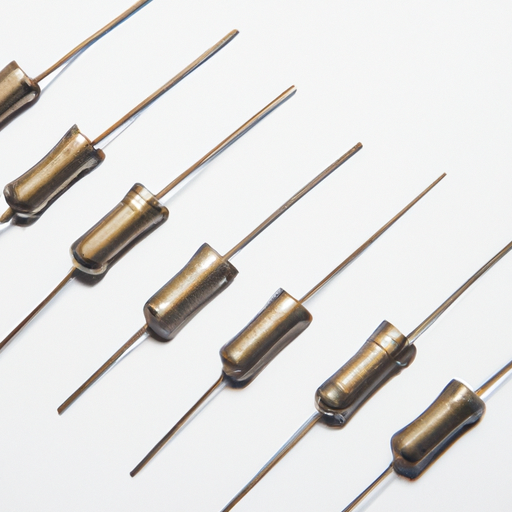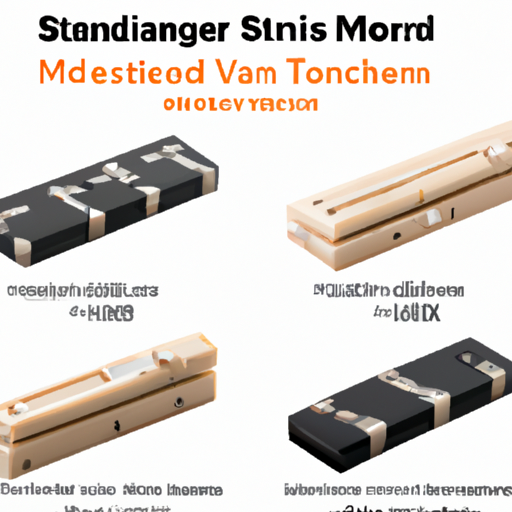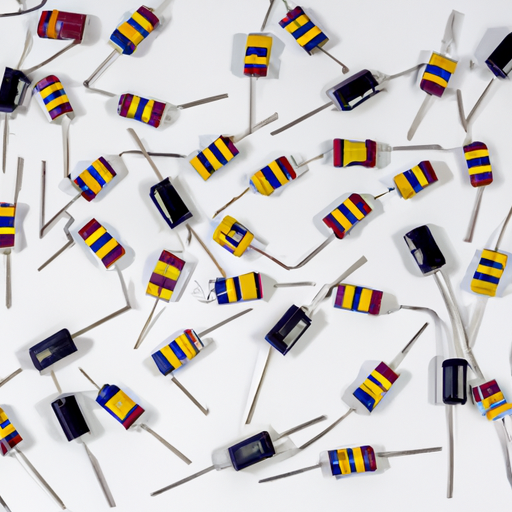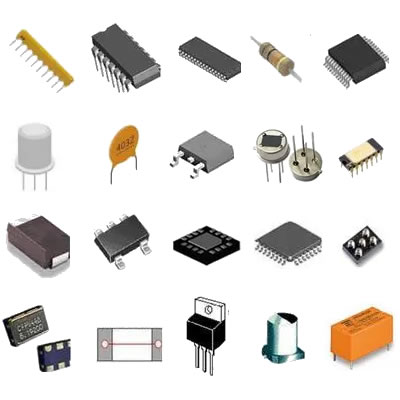What kind of product is a metal resistor?
What Kind of Product is a Metal Resistor?
I. Introduction
In the realm of electronics, resistors play a pivotal role in controlling the flow of electric current. A resistor is a passive electrical component that provides resistance to the flow of current, thereby enabling the regulation of voltage and current levels within a circuit. Among the various types of resistors available, metal resistors stand out due to their unique properties and applications. This blog post delves into the intricacies of metal resistors, exploring their definition, characteristics, applications, and future trends in technology.
II. Understanding Resistors
A. Basic Principles of Resistance
At the core of understanding resistors lies Ohm's Law, which states that the current (I) flowing through a conductor between two points is directly proportional to the voltage (V) across the two points and inversely proportional to the resistance (R) of the conductor. This relationship is expressed mathematically as V = I × R. Resistance can be categorized into static and dynamic types, with static resistance being the constant resistance of a component and dynamic resistance varying with the current or voltage.
B. Role of Resistors in Electrical Circuits
Resistors serve several critical functions in electrical circuits. They limit current to prevent damage to sensitive components, divide voltage to create specific voltage levels, and condition signals to ensure proper operation of electronic devices. Without resistors, circuits would be prone to overloads and failures, underscoring their importance in electronic design.
III. Types of Resistors
Resistors can be broadly classified into two categories: fixed and variable resistors.
A. Fixed Resistors
1. **Carbon Composition Resistors**: Made from a mixture of carbon and a binding material, these resistors are known for their low cost but have higher noise levels and lower precision.
2. **Metal Film Resistors**: These resistors are constructed by depositing a thin layer of metal onto a ceramic substrate. They offer better precision and stability compared to carbon resistors.
3. **Wirewound Resistors**: Made by winding a metal wire around a ceramic or fiberglass core, wirewound resistors can handle high power levels but are typically larger and more expensive.
B. Variable Resistors
1. **Potentiometers**: These are adjustable resistors that allow users to change resistance levels, commonly used in volume controls and tuning circuits.
2. **Rheostats**: Similar to potentiometers but designed to handle higher currents, rheostats are often used in applications requiring variable resistance.
C. Specialty Resistors
1. **Thermistors**: Temperature-sensitive resistors that change resistance with temperature variations, commonly used in temperature sensing applications.
2. **Photoresistors**: Also known as light-dependent resistors (LDRs), these change resistance based on light exposure, making them useful in light-sensing applications.
IV. Metal Resistors: An In-Depth Look
A. Definition and Composition
Metal resistors are a type of fixed resistor that utilizes metal materials, such as metal film or metal oxide, to achieve their resistance. The manufacturing process typically involves depositing a thin layer of metal onto a substrate, which is then etched to create the desired resistance value.
B. Characteristics of Metal Resistors
1. **Tolerance and Precision**: Metal resistors are known for their high precision and low tolerance levels, making them ideal for applications requiring accurate resistance values.
2. **Temperature Coefficient**: They exhibit a low temperature coefficient, meaning their resistance changes very little with temperature fluctuations, ensuring stable performance in varying conditions.
3. **Power Rating**: Metal resistors can handle significant power levels, making them suitable for high-performance applications.
C. Advantages of Metal Resistors
1. **Stability and Reliability**: Metal resistors maintain their performance over time, providing consistent resistance values and reducing the risk of circuit failure.
2. **Low Noise**: They generate minimal electrical noise, making them ideal for sensitive applications such as audio equipment and precision measurement devices.
3. **Wide Frequency Response**: Metal resistors can operate effectively across a broad range of frequencies, making them versatile for various electronic applications.
V. Applications of Metal Resistors
A. Consumer Electronics
Metal resistors are widely used in consumer electronics, including audio equipment, where their low noise and high precision enhance sound quality. They are also found in home appliances, ensuring reliable operation and energy efficiency.
B. Industrial Applications
In industrial settings, metal resistors are integral to automation systems and power supplies. Their stability and reliability make them suitable for controlling machinery and ensuring consistent power delivery.
C. Automotive Industry
The automotive industry relies on metal resistors for various applications, including engine control units and safety systems. Their ability to withstand harsh conditions and provide accurate readings is crucial for vehicle performance and safety.
D. Telecommunications
In telecommunications, metal resistors play a vital role in signal processing and network equipment. Their low noise and wide frequency response ensure clear and reliable communication signals.
VI. Comparison with Other Resistor Types
A. Metal vs. Carbon Resistors
When comparing metal resistors to carbon resistors, the differences in performance become evident. Metal resistors offer superior precision, lower noise levels, and better temperature stability, making them preferable for high-performance applications. However, carbon resistors are generally more cost-effective, making them suitable for less critical applications.
B. Metal vs. Wirewound Resistors
Metal resistors and wirewound resistors serve different purposes. While wirewound resistors can handle higher power levels, they are bulkier and less precise than metal resistors. Metal resistors are often favored in applications where size and precision are paramount, while wirewound resistors are used in high-power scenarios.
VII. Future Trends in Resistor Technology
As technology continues to evolve, so does the field of resistor technology. Innovations in materials are leading to the development of resistors with enhanced performance characteristics. Miniaturization and integration are also trends that are shaping the future, allowing for smaller and more efficient electronic devices. Additionally, environmental considerations and sustainability are becoming increasingly important, prompting manufacturers to explore eco-friendly materials and production methods.
VIII. Conclusion
In conclusion, metal resistors are a vital component in modern electronics, offering stability, precision, and reliability across a wide range of applications. Their unique characteristics make them indispensable in consumer electronics, industrial systems, automotive technology, and telecommunications. As technology advances, the role of metal resistors will continue to evolve, paving the way for innovative applications and improved performance. For those interested in the intricacies of electronic components, exploring the world of resistors, particularly metal resistors, is a rewarding endeavor that highlights the importance of these seemingly simple yet essential devices in our daily lives.
IX. References
1. Academic journals on electrical engineering and materials science.
2. Industry publications focusing on electronic components and circuit design.
3. Online resources and textbooks dedicated to electronics and resistor technology.





